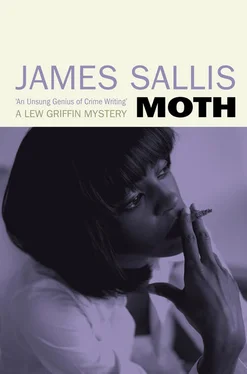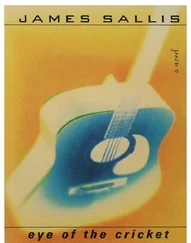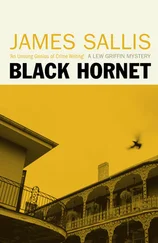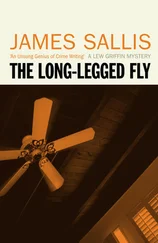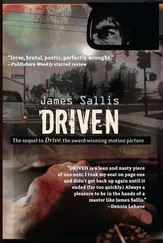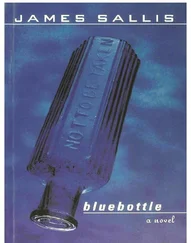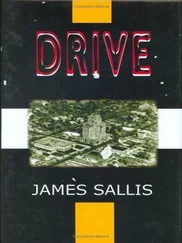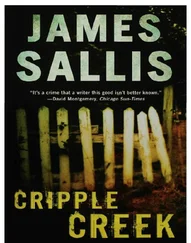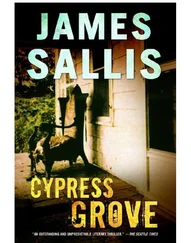James Sallis - Moth
Здесь есть возможность читать онлайн «James Sallis - Moth» весь текст электронной книги совершенно бесплатно (целиком полную версию без сокращений). В некоторых случаях можно слушать аудио, скачать через торрент в формате fb2 и присутствует краткое содержание. Жанр: Криминальный детектив, на английском языке. Описание произведения, (предисловие) а так же отзывы посетителей доступны на портале библиотеки ЛибКат.
- Название:Moth
- Автор:
- Жанр:
- Год:неизвестен
- ISBN:нет данных
- Рейтинг книги:3 / 5. Голосов: 1
-
Избранное:Добавить в избранное
- Отзывы:
-
Ваша оценка:
- 60
- 1
- 2
- 3
- 4
- 5
Moth: краткое содержание, описание и аннотация
Предлагаем к чтению аннотацию, описание, краткое содержание или предисловие (зависит от того, что написал сам автор книги «Moth»). Если вы не нашли необходимую информацию о книге — напишите в комментариях, мы постараемся отыскать её.
Moth — читать онлайн бесплатно полную книгу (весь текст) целиком
Ниже представлен текст книги, разбитый по страницам. Система сохранения места последней прочитанной страницы, позволяет с удобством читать онлайн бесплатно книгу «Moth», без необходимости каждый раз заново искать на чём Вы остановились. Поставьте закладку, и сможете в любой момент перейти на страницу, на которой закончили чтение.
Интервал:
Закладка:
I got in and started the engine.
“Thanks again, Sergeant.”
“Nothing to it.”
“Tell Camaro thanks for me, too, when you see him?”
“I’ll do that. If I see him, you understand.”
It’s still a hell of a river, even if it did seem bigger when I was a kid: not only endless, but also impossibly wide. It was full of boats then, with sandbars the size of islands; and ferries nosed back and forth across the wake of the big ships, cars crouched on their decks, people peering out from within, waiting for things to change.
Chapter Twenty-Four
Hospitals, like bus stations and prisons, are all much the same. Their makers conjure up the soul of the thing, then drape skin around it. This one was like the one where I woke all those years ago, light like fists in my eyes, with Vicky’s face hovering over me; like the one unseen in which my father died; like the one that broke Cordelia Davis’s long fall; like the one in which Verne had lain dying.
Tenth floor was a limited-admittance wing, and after being turned away at the nurse’s station I had to go back down to the administrative offices, where the atmosphere was so different that it was like stepping into another world, to clear permissions. I gave my name and relationship to Alouette to a walleyed young man whose expression suggested that he found what he saw out here perpetually just beyond his understanding, and added that he might call Travis for corroboration.
“Oh that won’t be necessary, Mr. Griffin,” he said, handing a small paper across to me. “Sergeant Travis has already called. Let me wish you and the girl both the best of luck. It’s tough, I know.”
I shared the ride back up with a stretcher and two attendants, probably a nurse and respiratory therapist. An old lady with skin like dried mud flats lay on the stretcher surrounded by monitors, oxygen cylinder, IV bags and portable pump, a compact drug box, charts, a box of disposable diapers. Tubes and drains snaked out from under the sheet covering her. She was trached, and the attendant at the head of the stretcher was squeezing an Ambu bag regularly, monotonously, to give her breath. Her eyes locked on to mine and I was surprised at how clear, how filled with intelligence, they were. Those eyes followed me as I got off on the tenth floor.
I handed over my scrip to the nurse at the gateway. She’d summon Charon, who’d ferry me across. But she only looked at it and signaled to another beyond the double doors. That one buzzed the doors to unlock them, holding her finger on the button until I was in.
A young woman sitting behind the desk just inside stood. “Mr. Griffin?” She was in her midtwenties, a blonde with perfect fair skin and a bow in her hair. Typical valley girl sort, but she was wearing jeans, cowboy boots and a denim shirt with snaps for buttons. Barbie at the Bar-B, I thought inanely.
She held out a hand to shake mine. “I’m Mickey Francis, a social worker on the staff here. We don’t have very much information about Alouette, I’m afraid. Do you have a few minutes to answer some questions? It would be a great help to us.”
“I have the time, Miss Francis. But I don’t know if I’ll have any answers for you.”
“Anything will help.”
So we went down the hall to a conference room looking much like the police interrogation room back across the river, poured two cups of coffee and sat down. A calendar on the wall showed a swatch of New England forest in the throes of fall, an impossible array of gold and scarlet and chrome yellow; each leaf on each tree seemed a different color. Starting with Chip Landrieu’s arrival at my doorstep, backtracking to Verne’s and my lengthy relationship, jump-cutting forward to Baby Girl’s death, I told her what I knew.
As I talked, she made brief notes in a pocket memo book. I thought of Eddie Lang, who kept the cues for the entire Whiteman Orchestra repertoire on an index card. And of how he had tried so hard, in those amazing duets with Lonnie Johnson, to transcend his heavy, European style. Lang could hear the difference, that loose urgency, in Johnson’s playing-sensed but somehow couldn’t seize it.
“Do you mind if I contact Richard Garces?” she asked when I finished. “He might be able to get some of the information we need. Legally I suppose we’re going to have to notify the father, but we can probably hold off on that for a while.”
“When you do, be prepared for the descent of the Valkyries.”
“Oh, we’re used to Valkyries around here, Mr. Griffin.” She stood and held out her hand. “Thank you for your help. We’ll do what we can. But as you know, Alouette will have to do most of it herself. Jane, at the desk, will take you in to see her. The police have cleared her from the jail ward, by the way: she’ll be moved to a regular ICU as soon as a bed comes available. Good luck.”
She walked away. Because the boots’ heels tipped her forward and she leaned back just a little too hard against it, she seemed above the waist to carry herself stiffly and unnaturally straight. But her legs, long and looking still longer in jeans and heels, moved freely.
Jane escorted me into a four-bed room just within the double doors. To the right, propped on his or her side with rolled pillows, lay a hairless individual with intersecting scars like two zippers across the crown of his/her head. He or she was trached, and an aerosol generator in the wall above the bed, hissing, delivered continuous humidity to the airway through a corrugated tube and T-piece, outflow disappearing when the patient breathed in, spuming back into the room on exhalation. In the bed behind this one, a middle-aged woman sat upright, eyes following my progress into the room, face and eyes equally blank.
Alouette was in the rear left corner, past an unoccupied bed. Soft restraints at ankles and wrists were tied to the bed rails, and a half dozen sandbags chucked along her sides helped hold her in place, so that she could move only her eyes. Towels covered breasts and abdomen. She had peripheral IVs in each arm, happy-face patches for the cardiac monitor on her chest, yet another line in her neck. An endotracheal tube was taped in place at her mouth and connected to a ventilator alongside the bed. Its bellows rose, hesitated and fell, accordionlike.
A nurse had just finished bathing her and was gathering up the plastic basin half filled with water, wash-cloths, talcum, bottle of liquid soap, toothbrush, toothpaste. “Are you the father?”
I shook my head. “A friend.”
Alouette’s eyes had locked on to me. I imagined that I saw all sorts of things in them. Perhaps I did. She tried to speak, prompting a loud buzz and flashing light from the ventilator.
“You can’t talk, sweetheart, remember?”
She put down the basin and reached for a clipboard on the bedside table.
“I’ll undo an arm, honey, if you promise me you won’t try to pull anything loose. And then I can leave you folks alone a minute.”
Alouette looked at her and blinked several times.
“You’ll have to help her,” the nurse said to me. “Things are still pretty thin for her. Will be, for a while.”
She started to untie her right arm, but when I told her that Alouette was left-handed (like her mother), she redid the knot and pulled the other free instead. Handed me the clipboard.
I walked around to the side and held it up for her, gave her the pencil. She made several tries at it-lines huge and shaky and often not meeting, other times over-scoring one another, tip of the pencil lead breaking away at one point-before I could make out what it was.
LEW.
I nodded, surprised that she knew who I was.
I-
Hope? Hate?
She tried again.
Читать дальшеИнтервал:
Закладка:
Похожие книги на «Moth»
Представляем Вашему вниманию похожие книги на «Moth» списком для выбора. Мы отобрали схожую по названию и смыслу литературу в надежде предоставить читателям больше вариантов отыскать новые, интересные, ещё непрочитанные произведения.
Обсуждение, отзывы о книге «Moth» и просто собственные мнения читателей. Оставьте ваши комментарии, напишите, что Вы думаете о произведении, его смысле или главных героях. Укажите что конкретно понравилось, а что нет, и почему Вы так считаете.
